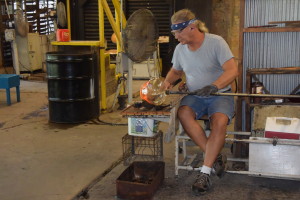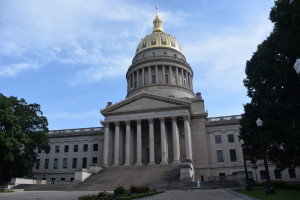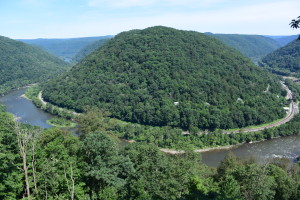West Virginia, Wild and Wonderful
I’m just back from a week exploring and filming around West Virginia, and it truly was one of the most enlightening and enjoyable travel experiences I’ve had in the United States.
Never have I experienced people so fiercely devoted to their home identity as I did in West Virginia. And never have I experienced such friendly people, welcoming hospitality, and truly beautiful scenery in one place.
West Virginia – the most northern of the southern states, and the most southern of the northern states. It’s a state shrouded in stereotypes and assumptions. As an outsider, I knew of coal, poverty, and mountain music. And while those things exist, there’s much more to this Appalachian state. I spent a week meeting the locals and exploring what makes West Virginians so proud and loyal to their homeland.
Everywhere I went people were friendly and helpful. Not simply polite – but really caring and friendly. Willing to take their time and help, willing to share a meal and conversation, eager to hear your story and share theirs. I was called “honey” and “sweetie” more times this week than I have in my whole life. And I made a lot of new friends.
One fellow I met explained to me that West Virginians are a band of hard working misfits, often poor, with nothing else to hold on to but their love for each other and their sense of pride for their home state. As he put it, “when you have nothing else, you might as well have a smile towards your neighbor.”

Located smack in the middle of the Appalachian Mountains, West Virginia is – as the state mottos goes – wild and wonderful. While highways crisscross the land and meet in the capital of Charleston, the bulk of the state is rural and rugged. Small towns dot the landscape, many along riverbanks and railroad tracks. Former booming coal towns have shriveled, while other areas have grown with outdoor tourism and newer (and potentially controversial) energy extraction industries.
The concept of West Virginia as a state began brewing in the late 1700s, when the mostly German and Celtic famers of the western side of Virginia felt little connection to the wealthy British plantation owners of the east. They felt they were not fairly represented in state politics and finances. Abraham Lincoln officially announced the state as a member of the Union in 1863, following a series of votes on succession from Virginia.

While the state officially joined the Union during the Civil War, loyalties were split, with West Virginian soldiers taking up arms for both the Union and the Confederate Armies. While today it may be tempting to label the state as “northern” or “southern,” most folks I met shared that they simply identified as West Virginians, at ease (and in even love) with their own unique and complex history.
This history offers a glimpse into the spirit of the people, and also helps to explain why natives regularly sport West Virginia University gear, can name their state bird (the cardinal) the state flower (the rhododendron), and can easily share local history and trivia with pride. It also helps to explain how hard working West Virginians have found, and now fiercely defend, their sense of place among the 50 states.
Stay tuned for my round up of the fun and adventure we had in West Virginia while filming an episode of Fringe Benefits. From salt tasting to white water rafting – we had a blast!

